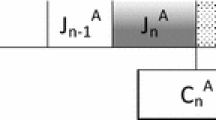Abstract
We study a single-machine scheduling model combining two competing agents and due-date assignment. The basic setting involves two agents who need to process their own sets of jobs, and compete on the use of a common processor. Our goal is to find the joint schedule that minimizes the value of the objective function of one agent, subject to an upper bound on the value of the objective function of the second agent. The scheduling measure considered in this paper is minimum total (earliness, tardiness and due-date) cost, based on common flow allowance, i.e., due-dates are defined as linear functions of the job processing times. We introduce a simple polynomial time solution for this problem (linear in the number of jobs), as well as to its extension to a multi-agent setting. We further extend the model to that of a due-window assignment based on common flow allowance.
Similar content being viewed by others
References
Adamopoulos GI, Pappis CP (1996) Single machine scheduling with flow allowances. J Oper Res Soc 47:1280–1285
Agnetis A, Mirchandani PB, Pacciarelli D, Pacifici A (2004) Scheduling problems with two competing agents. Oper Res 52:229–242
Agnetis A, Pacciarelli D, Pacifici A (2007) Multi-agent single machine scheduling. Ann Oper Res 150:3–15
Agnetis A, Billaut JC, Gawiejnowicz S, Pacciarelli D, Soukhal A (2014) Multiagent scheduling. Springer, Berlin
Baker KR, Smith JC (2003) A multiple criterion model for machine scheduling. J sched 6:7–16
Cheng TCE, Cheng SR, Wu WH, Hsu PH, Wu CC (2011) A two-agent single-machine scheduling problem with truncated sum-of-processing-times-based learning considerations. Comput Ind Eng 60:534–541
Cheng TCE, Liu CY, Lee WC (2014) Two-agent single-machine scheduling to minimize the weighted sum of the agents’ objective function. Comput Ind Eng 78:66–73
Gawiejnowicz S, Lee WC, Lin CL, Wu CC (2011) Single-machine scheduling of proportionally deteriorating jobs by two agents. J Oper Res Soc 62:1983–1991
Gerstl E, Mosheiov G (2013) Scheduling problems with two competing agents to minimize weighted earliness-tardiness. Comput Oper Res 40:109–116
Gerstl E, Mosheiov G (2014) Single machine just-in-time scheduling problems with two competing agents. Nav Res Logist 61:1–16
Gordon VS, Proth JM, Chu C (2002) A survey of the state-of-the-art of common due date assignment and scheduling research. Eur J Oper Res 139:1–25
Ji M, Chen K, Ge J, Cheng TCE (2014) Group scheduling and job-dependent due-window assignment based on a common flow allowance. Comput Ind Eng 68:35–41
Leung JYT, Pinedo M, Wan G (2010) Competitive two-agent scheduling and its applications. Oper Res 58:458–469
Li DC, Hsu PH (2012) Solving a two-agent single-machine scheduling problem considering learning effect. Comput Oper Res 39:1644–1651
Li S, Yuan J (2012) Unbounded parallel-batching scheduling with two competitive agents. J Sched 15:629–640
Luo W, Chen L, Zhang G (2012) Approximation schemes for two-machine flow shop scheduling with two agents. J Comb Optim 24:229–239
Mor B, Mosheiov G (2010) Scheduling problems with two competing agents to minimize minmax and minsum earliness measures. Eur J Oper Res 206:540–546
Mor B, Mosheiov G (2011) Single machine batch scheduling with two competing agents to minimize total flowtime. Eur J Oper Res 215:524–531
Mor B, Mosheiov G (2012a) Minmax scheduling problems with common flow-allowance. J Oper Res Soc 63:1284–1293
Mor B, Mosheiov G (2012b) Scheduling a maintenance activity and due-window assignment based on common flow allowance. Int J Prod Econ 135:222–230
Mor B, Mosheiov G (2012c) Parallel machine scheduling problems with common flow- allowance. Int J Prod Econ 139:623–633
Mor B, Mosheiov G (2014) Polynomial time solutions for scheduling problems on proportionate flowshop with two competing agents. J Oper Res Soc 65:151–157
Mor B, Mosheiov G (2016a) Minimizing maximum cost on a single machine with two competing agents and job rejection. J Oper Res Soc. doi:10.1057/s41274-016-0003-8
Mor B, Mosheiov G (2016b) Minsum and minmax scheduling on a proportionate flowshop with common flow allowance. Eur J Oper Res 254:360–370
Mosheiov G, Oron D (2007) Minmax scheduling with job-classes and earliness-tardiness costs. Eur J Oper Res 17:61–62
Mosheiov G, Oron D (2010) Job dependent due-window assignment based on a common flow allowance. Found Comput Decis Sci 35:185–195
Mosheiov G, Sarig A (2009) Due-date assignment on uniform machines. Eur J Oper Res 93:49–58
Ng CT, Cheng CTE, Yuan JJ (2006) A note on the complexity of the two-agent scheduling on a single machine. J Comb Optim 12:387–394
Shabtay D, Steiner G (2007) Optimal due date assignment and resource allocation to minimize the weighted number of tardy jobs on a single machine. Manuf Serv Oper Manag 9:332–350
Wang JB (2006) Single machine common flow allowance scheduling with controllable processing times. J Appl Math Comput 21:249–257
Zhao K, Lu X (2016) Two approximation algorithms for two-agent scheduling on parallel machines to minimize makespan. J Comb Optim 31:260–278
Acknowledgments
This research was supported by the Israel Science Foundation (Grant No. 1286/14). The second author was supported in part by The Charles Rosen Chair of Management and the Recanati Fund of The School of Business Administration, The Hebrew University, Jerusalem, Israel.
Author information
Authors and Affiliations
Corresponding author
Rights and permissions
About this article
Cite this article
Mor, B., Mosheiov, G. A two-agent single machine scheduling problem with due-window assignment and a common flow-allowance. J Comb Optim 33, 1454–1468 (2017). https://doi.org/10.1007/s10878-016-0049-1
Published:
Issue Date:
DOI: https://doi.org/10.1007/s10878-016-0049-1



